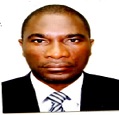Title : Impact of climate change on pesticide monitoring in Guessabo Lake and human risk assessment
Abstract:
Ivory Coast lake environments are constantly under pressure from pollutants that come from intensive agriculture. The purpose of this work is to identify the impact of climate change on the quality of water resources and the risks of diffuse pollution linked to fertilizers and phytosanitary products. Thus, seasonal water sample collection campaigns were conducted during the years 2017 and 2018 in seven stations distributed on Guessabo Lake, upstream of the Buyo dam on the Sassandra river. To conduct this study, pesticides contents were measured through solid phase extraction and then analyzed using gas chromatography coupled to tandem mass spectroscopy. Results showed that 7.14% of the 28 water samples analyzed had pesticide residue contents higher than the t for group A3 (5 µg / L) compared to 71.43% for groups A1 and A2 (0.5 µg / L). Total pesticide load varied from 16.1 µg / L in the rainy season to 23.5 µg / L in the dry season. Increases in temperature and variations in precipitation, which are the main determinants of the proliferation of pests and pathogens, have led to an increased use of pesticides in terms of quantities, doses, frequencies and varieties or types of products. This results in high detection frequencies of active ingredients ranging from 10% to 95% and average values of organophosphates, triazines and metabolites, substituted ureas, carbamates and chloroacetamides respectively equal to 0.55 μg / L, 1.85 μg / L, 1.48 μg / L, 13.06 μg / L and 0.93 μg / L.The impact of contamination of rivers linked to climate change on aquatic species (fish) has been highlighted. Aldicarb, simazine and monolinuron, molecules, having the highest concentrations in the environmental matrix (water), are also those quantified in high contents in the muscle of fish. Climate change, which has contributed to reducing the concentrations of pesticides on crops due to the increased volatilization and accelerated degradation of these crops, has favoured the increase in doses, higher frequencies and different varieties found in the course of water prospected. Based on the pesticide survey results, a human health non-carcinogenic risk assessment was conducted for adults and children. The risk quotient (RQ) estimates for the most frequently detected pesticides were below acceptable risk values, when the average values were considered. However, considering the maximum values, aldicarb, simazine and methyl parathion risk quotient (RQ) estimates were above acceptable risk values for children. Also, after reduction to 50% during a conventional treatment, the RQ of aldicarb (1.98) and methyl parathion (1.12) is also greater than 1. However, the probable risk linked to exposure by ingestion of water after a reduction of 75% is low for both age categories. To eliminate this high contamination, highly toxic crop protection chemicals must be replaced by alternatives that are less dangerous or more respectful of people and the environment.


